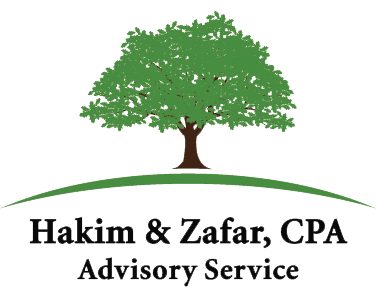 After a whirlwind 2025 that produced what may be the largest tax bill in American history, the coming year looks dramatically different. Tax policy experts are predicting a legislative standstill, a turbulent tax filing season, and lingering questions about how new provisions will work when put into practice.
After a whirlwind 2025 that produced what may be the largest tax bill in American history, the coming year looks dramatically different. Tax policy experts are predicting a legislative standstill, a turbulent tax filing season, and lingering questions about how new provisions will work when put into practice.
A Year of Legislative Gridlock
The forecast for 2026 tax legislation is bleak. With Republicans clinging to an impossibly thin House majority of just 218 or 219 seats following recent resignations, passing any significant bills will be extraordinarily difficult. Every single Republican vote would be needed to advance legislation through reconciliation, and as 2025 demonstrated, keeping the caucus unified is no small feat.
While there has been discussion about a potential second reconciliation bill, most observers view this as wishful thinking. If such a bill were to materialize, it would likely focus on technical corrections to lingering Tax Cuts and Jobs Act issues and problems that emerged from the One Big Beautiful Bill Act. One notable concern involves accelerated research credits that did not deliver the benefits lawmakers intended because of unexpected interactions with the corporate alternative minimum tax.
The more pressing concern will simply be keeping the government running. A January deadline looms to avoid another shutdown and, given the contentious relationship between House Republicans and Democrats throughout 2025, even basic funding bills face uncertain prospects. With midterm elections consuming attention in the second half of the year, legislative bandwidth for tax policy will be virtually nonexistent.
A Rough Road Ahead for Taxpayers
The 2026 tax filing season is shaping up to be challenging. The IRS has experienced unprecedented upheaval, losing somewhere between 20 percent and 25 percent of its workforce through a combination of voluntary resignations and reductions in force. Many of these departures came from enforcement divisions, though customer service will also feel the impact.
Leadership instability has compounded these problems. The agency cycled through roughly seven commissioners or acting commissioners in 2025 alone. Former Congressman Billy Long was confirmed as commissioner but lasted less than two months before departing under unclear circumstances. The Treasury Secretary has since taken direct oversight of the agency, and an IRS CEO position was created for the first time in the agency’s history. No new commissioner nominee has been put forward, and there is currently no Senate-confirmed chief counsel either.
For taxpayers who need more than basic return processing, this means longer wait times, fewer answered phone calls, and potential delays. Those filing straightforward W-2 returns seeking refunds will likely fare better than individuals or businesses with complicated situations requiring IRS assistance. Audit rates will decline intentionally, as the current administration has committed to scaling back the enforcement emphasis of the Biden years.
The Justice Department’s Tax Division also has been gutted, losing many qualified litigators who previously maintained an exceptional track record against large taxpayers in court. This erosion of enforcement capability may not immediately move voluntary compliance numbers, but continued cuts will eventually catch up with the system.
Unresolved International Questions
The relationship between U.S. tax policy and the global minimum tax framework under Pillar 2 remains unsettled. Republicans declined to include a retaliatory tax provision known as section 899 in last year’s legislation based on an agreement with G20 nations. If that agreement unravels, there may be pressure to revisit retaliatory measures, though passing such legislation with current House margins seems unlikely.
American companies operating internationally could face pressure in foreign jurisdictions if the United States fails to align with Pillar 2 requirements. While many in Washington believe the international minimum tax framework will collapse, the reality on the ground suggests otherwise, and this disconnect might force future legislative action.
Conclusion
The bottom line for 2026: expect a holding pattern on major tax legislation and brace for a difficult filing season as an understaffed and unsettled IRS works to implement last year’s massive changes.

 The U.S. Treasury recently enacted a new reporting requirement aimed at quashing illicit financial transactions. The agency believes that corporate anonymity is enabling money laundering, terrorism, and drug trafficking. As part of the 2021 Corporate Transparency Act (CTA), certain companies are now required to report information about their beneficial owners. The goal of the new registration requirements is to create a centralized database of beneficial ownership information.
The U.S. Treasury recently enacted a new reporting requirement aimed at quashing illicit financial transactions. The agency believes that corporate anonymity is enabling money laundering, terrorism, and drug trafficking. As part of the 2021 Corporate Transparency Act (CTA), certain companies are now required to report information about their beneficial owners. The goal of the new registration requirements is to create a centralized database of beneficial ownership information. How and Where to File
How and Where to File